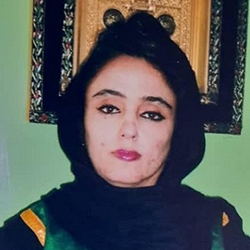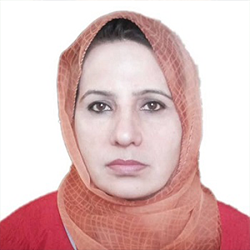
Killings of Women Judges in Afghanistan - Statement of the IAWJ
The following is a statement from the Hon. Vanessa Ruiz, President of the International Association of Women Judges (IAWJ).
"Last month, two women judges were assassinated in Kabul as they were on their way to their posts in the Supreme Court. The perpetrators of these violent killings have not been identified or charged. These two judges were among approximately 250 women judges in Afghanistan. Many fear for their safety, others have been harmed. The Supreme Court of Afghanistan has been advised by security personnel that all women judges are potential targets of violence.
The International Association of Women Judges (IAWJ) works to support and empower women judges worldwide to advance gender equality and human rights through education and by promoting judicial leadership. We envision a world where gender equality, human rights and inclusive justice systems are the norms. We stand in solidarity with the women judges in Afghanistan and call on the international community to join us in condemning the recent assassinations and the continuing threats against women in the judiciary. The rule of law is the foundation of a free and fair society, but it is fragile and will be imperilled unless we stand up to vigorously protect those charged with implementing the law. The government and the Supreme Court must respond immediately with effective measures to counter these threats to women judges.
The IAWJ mourns the tragic deaths of our sister judges Qadria Yasini and Zakia Herawi and we offer our profound condolence to their families and judicial colleagues. We knew these judges. The IAWJ started conducting a program for Afghan women judges in 2003, and we hosted them in Vermont and Washington DC. On behalf of over 6000 member judges in more than 100 countries in our global network we embrace and support our sister judges in Afghanistan and the Afghanistan Women Judges Association.
Make no mistake, the targeting of women judges is part of a campaign to intimidate women in prominent roles -journalists, rights advocates and others who support change towards a more inclusive and fair society that respects human rights. Advancement towards a just order and equitable development is not possible without women's participation in all aspects of society. In the judiciary, in particular, women judges at all level are essential to the legitimacy, integrity and fairness of courts in the eyes of the people and key for effective and fully informed decisions that affect lives. This attack on women judges is an attempt to undo the progress that has been made in recent years in the treatment of women and the establishment of the rule of law in Afghanistan.
Women judges courageously undertake their judicial duties under dangerous conditions every day in countries around the world. But being a judge should not be a death sentence. Judges Zakia Herawi and Qadria Yasini were murdered in broad daylight while they were in an official car en route to their work at the Supreme Court. These killings must be thoroughly and immediately investigated and prosecuted in a public and transparent manner. The perpetrators must be brought to justice.
This violence cannot be allowed to continue. The government must commit to adopt and scrupulously implement proper and effective security measures to ensure the safety of judicial officers. Most of the women judges in Afghanistan serve on primary and appellate courts and must rely on their own private resources to find transportation that will offer a modicum of anonymity to reduce their risk of exposure to violence. This is an added financial and logistical burden borne by women judges that must be redressed. For the very few women judges who work in the Supreme Court who have the benefit of official transportation, the existing measures were obviously insufficient to prevent the assassinations in Kabul. The security of their places of work also must be strengthened. In addition, care must be taken when posting judges, in particular women judges, to areas of the country that are physically and culturally unsafe for them to serve unless proper investigation and precautions are undertaken.
We call on governments and the international community to join us in demanding these necessary security measures for a legal order and to render assistance toward their implementation."
|  | |||
| Judge Qadria Yasini, 53, born in Kabul, graduated from law school at Kabul University and earned a master's degree from Payam-e-Noor University. She had been a judge in the Supreme Court for many years and authored books on legal issues, including inheritance rights. She had two sons, 18 and 21 years old. | Judge Zakia Herawi, 34, born in Herat province, graduated from the law faculty at Kabul University. She was appointed as a judge in 2002 and worked in the directorate of studies at the Supreme Court. Judge Herawi participated in IAWJ's educational program in Vermont and Washington DC as did a number of other Afghan women judges. Judge Herawi's mother has said that her daughter was her sole support. |







